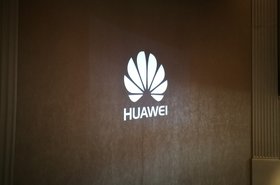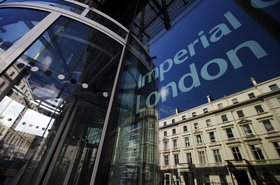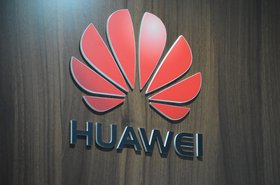Six months after stating that Huawei could supply equipment to UK telecoms companies for their 5G networks, the British government has changed course.
Companies will be able to buy Huawei 5G equipment until December 31, at which point it will be banned. Telcos then have until 2027 to remove Huawei 5G equipment entirely. 2G, 3G, and 4G kit can remain until it is no longer needed, however.
The Telecoms Infrastructure Bill still has to be voted into law by Parliament, but faces opposition by a significant Conservative backbench that wants tougher restrictions on the Chinese telecoms giant - including on older equipment.
The move comes after pressure by the US government, claims of spying, and Huawei being blocked from most semiconductor supply chains in May. Huawei denies spying and hacking claims, but has admitted that restrictions on its supply chain have posed difficulties.
Probably not the last of this story
"By the time of the next election we will have implemented in law an irreversible path for the complete removal of Huawei equipment from our 5G networks," Culture Secretary Oliver Dowden said in a statement to the House of Commons. "We have not taken this decision lightly and I must be frank about the decision's consequences for every constituency in this country; this will delay our roll-out of 5G."
"Our decisions in January [to ban Huawei from the network 'core'] had already set back that roll-out by a year and cost up to £1bn. Today's decision to ban procurement of new Huawei equipment from the end of this year will delay roll-out by a further year and will add up to half a billion pounds in costs.
"Requiring operators, in addition, to remove Huawei equipment from their 5G networks by 2027 will add hundreds of millions of pounds further to the costs and further delay roll-out. This means a cumulative delay to 5G roll-out of two to three years and costs of up to £2bn."
Removing Huawei equipment from their respective networks could prove challenging for British telcos.
"If you were to try and not have Huawei at all [in 5G] ideally we'd want seven years and we could probably do it in five," BT's chief executive Philip Jansen told BBC Radio 4's Today program earlier this week.
"If you wanted to have no Huawei in the whole of the telecoms infrastructure across the whole of the UK, I think that's impossible to do in under 10 years."
Jansen also warned of “outages" and security risks in previous comments. "We need to make sure that any change of direction doesn’t lead to more risk in the short term - I think that’s where the detail really matters," he said. "If we get in a situation where things need to go very fast, then we go into a situation where service for 24 million BT Group mobile customers is put into question - outages would be possible.
“Secondly, the security and safety in the short-term could be put at risk - this is really critical here. If you are not able to buy or transact with Huawei that would mean you wouldn’t be able to get software upgrades if you take it to its specificity.”
The company previously said removing Huawei equipment could cost it £500m ($627m), with similar figures expected among the other major network operators.
Huawei UK spokesperson Ed Brewster said in a statement: "This disappointing decision is bad news for anyone in the UK with a mobile phone. It threatens to move Britain into the digital slow lane, push up bills, and deepen the digital divide. Instead of ‘leveling up’ the government is leveling down and we urge them to reconsider. We remain confident that the new US restrictions would not have affected the resilience or security of the products we supply to the UK.
"Regrettably our future in the UK has become politicized, this is about US trade policy and not security. Over the past 20 years, Huawei has focused on building a better connected UK. As a responsible business, we will continue to support our customers as we have always done.
"We will conduct a detailed review of what today’s announcement means for our business here and will work with the UK government to explain how we can continue to contribute to a better connected Britain."
Huawei UK chairman Lord Browne quit just hours before the announcement was made. The Chinese government previously threatened to retaliate by pulling out of UK infrastructure projects, should Huawei be banned.
"We are an independent company from any government, which includes the Chinese government, we are purely a commercial organization," Huawei's UK government and public affairs head, Victor Zhang, told DCD in June.
"The company always promotes the open market and free trade policy, which UK has a strong reputation on. We continue to believe that UK will definitely continue their open market and its free trade policy, especially post-Brexit and post-Covid-19, to attract foreign investment and to make sure the UK can be the leading position in the global for the next decade."
He added that "the trade dispute and trade war - that's definitely not what we want. We want global cooperation. That definitely will be beneficial for the companies, for the consumers, and it's good for the economic recovery."




